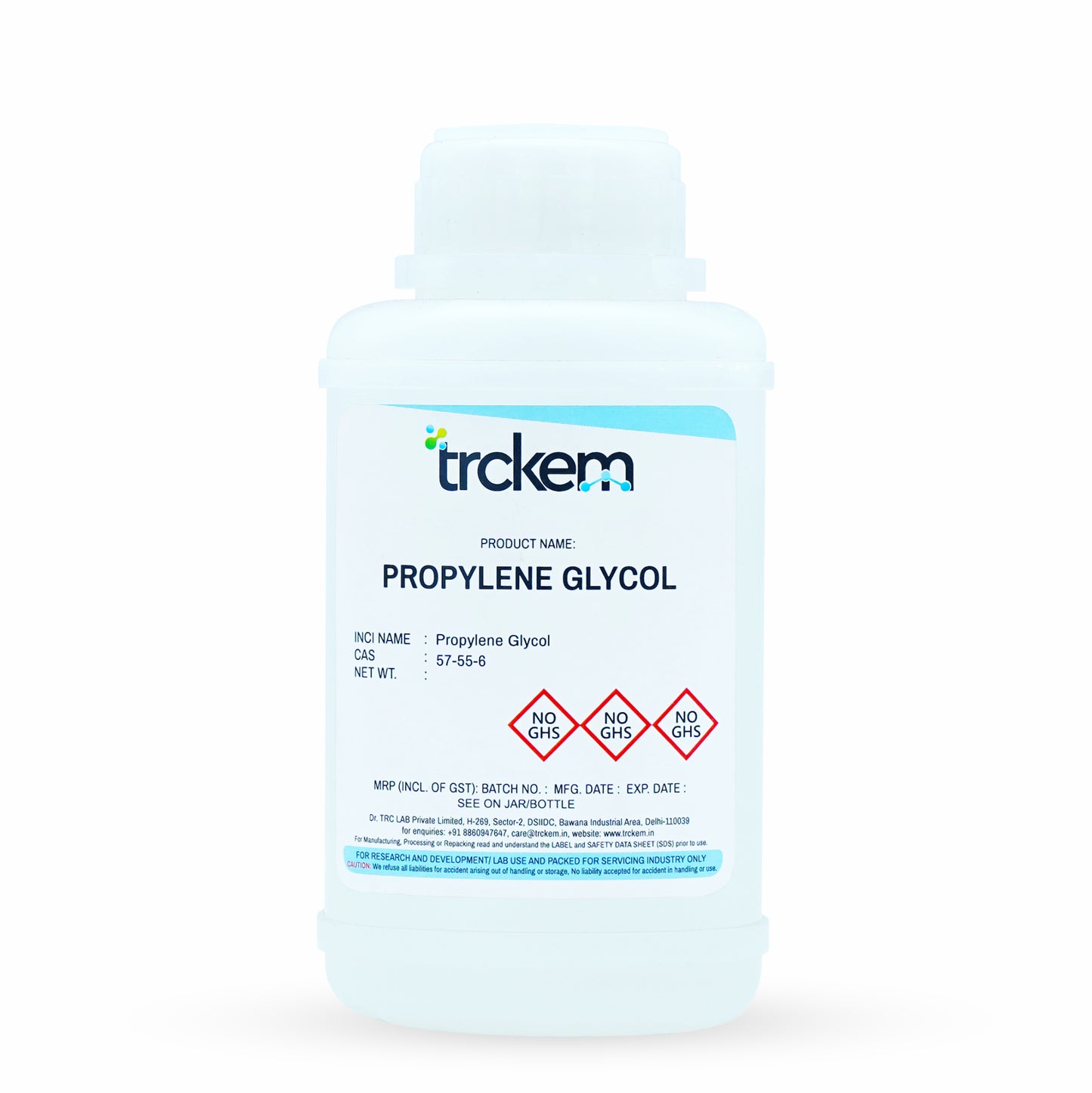
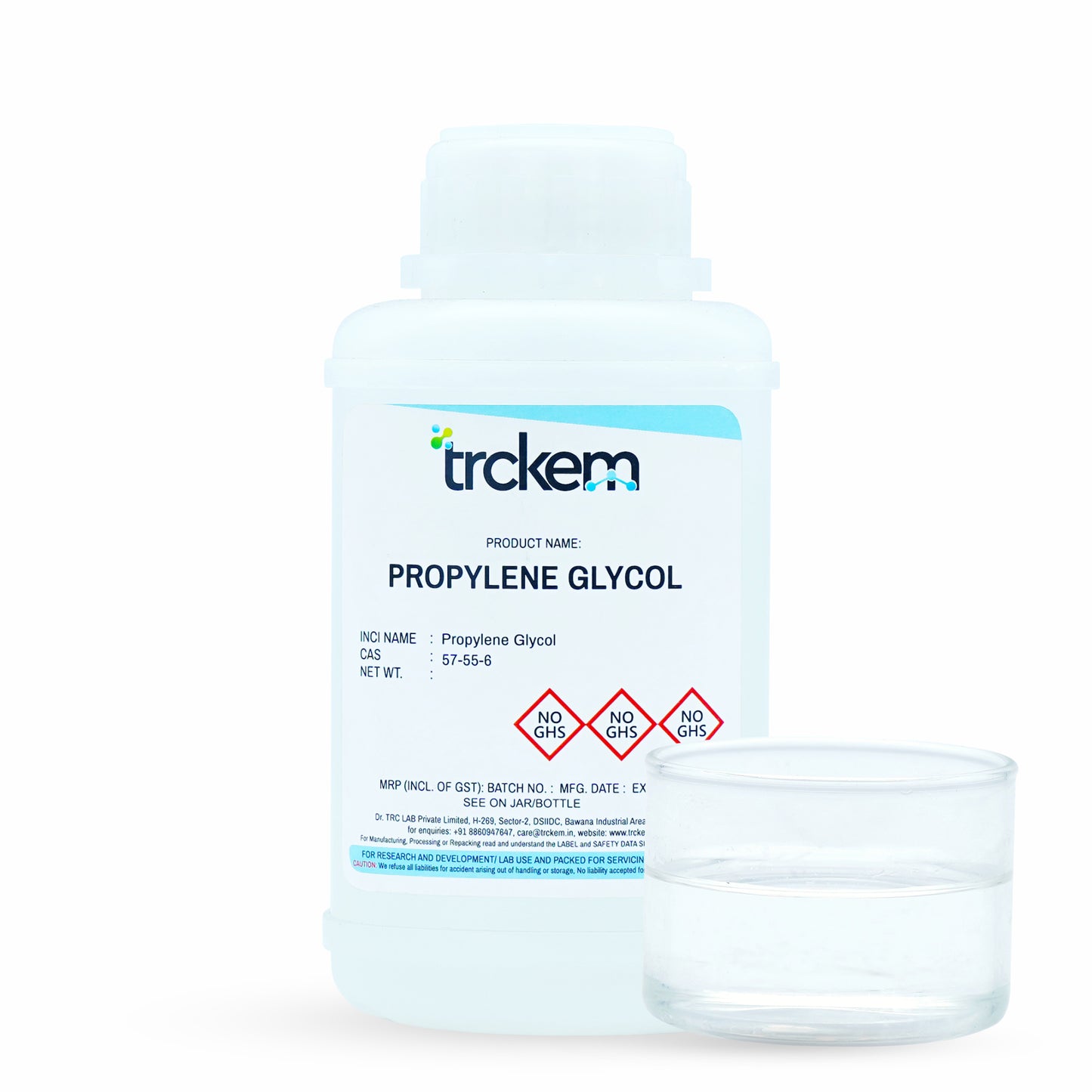
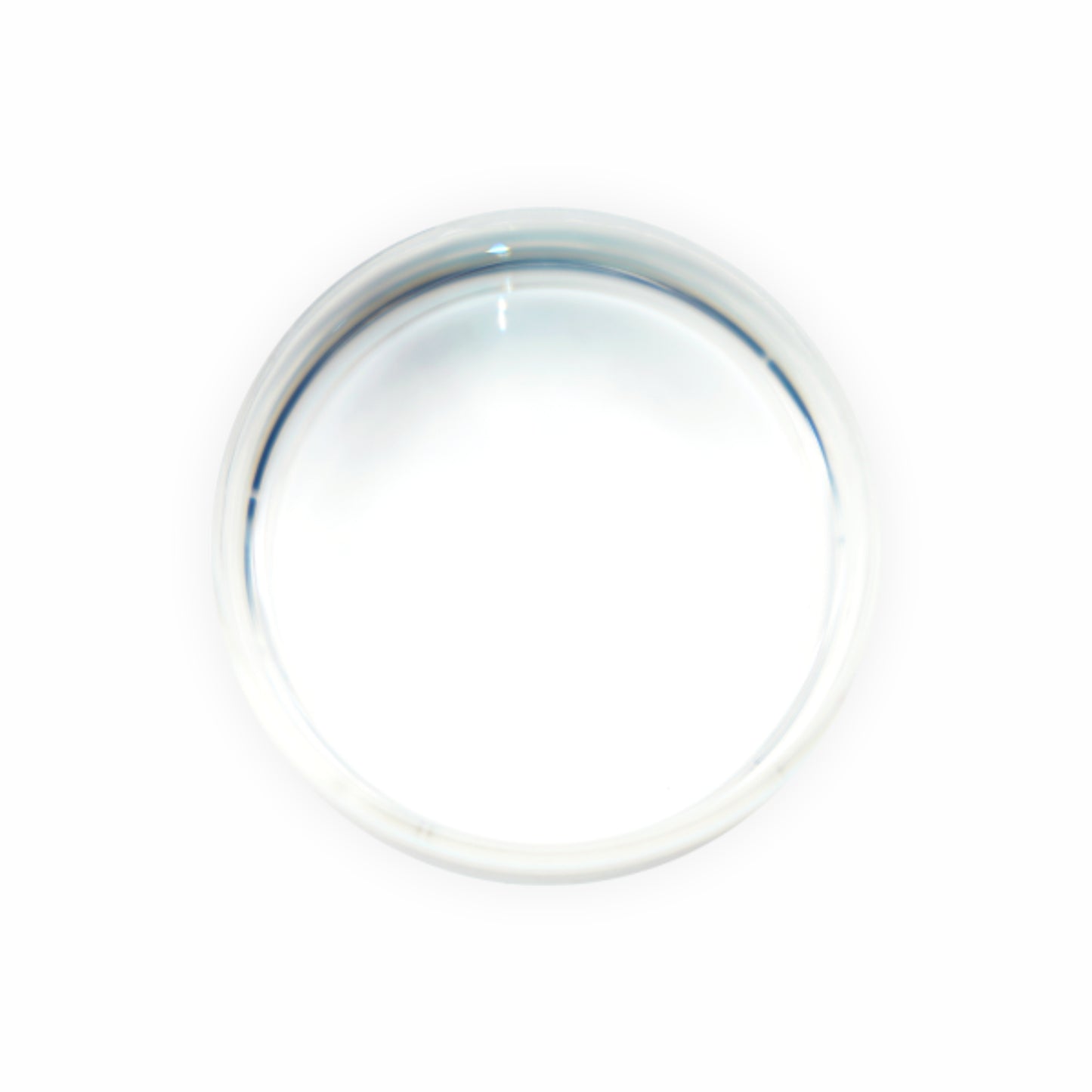
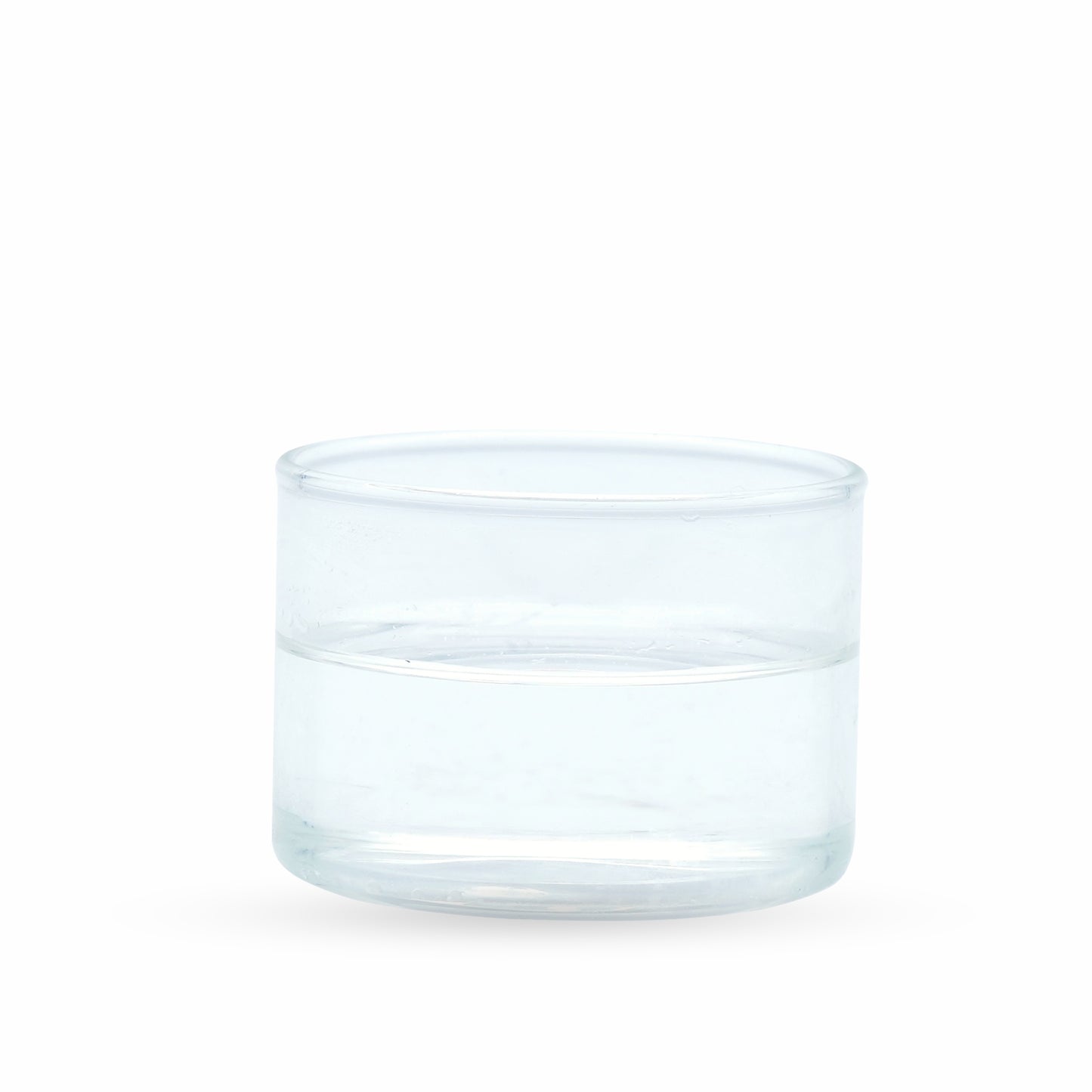
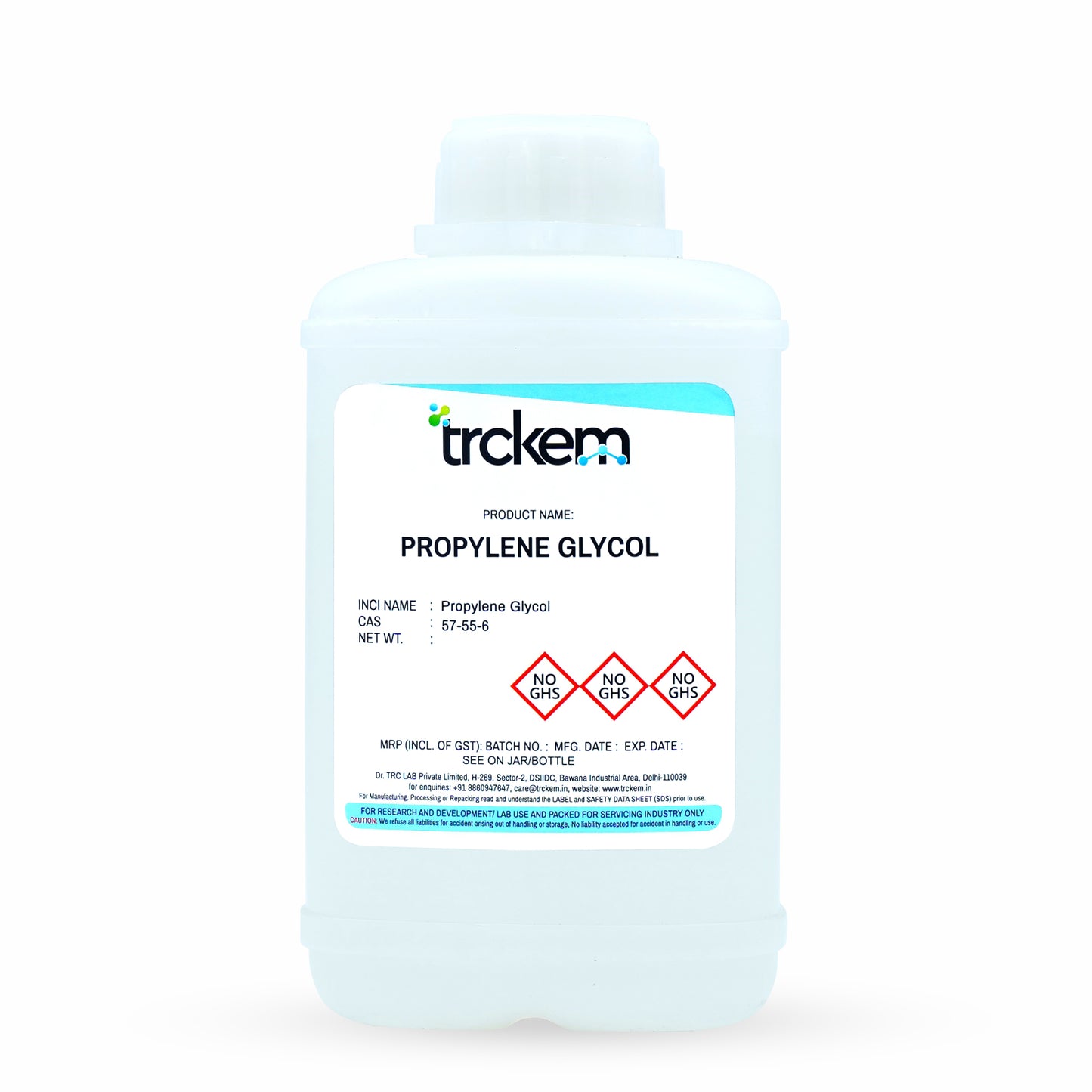
General Description
Propylene Glycol is a synthetic organic compound widely used across various industries, including cosmetics, pharmaceuticals, and food production. It is a colorless, odorless, and slightly viscous liquid with excellent humectant and solvent properties. Due to its ability to retain moisture, it is a key ingredient in many skincare and personal care formulations. Manufacturers and suppliers commonly buy, sell, and wholesale Propylene Glycol in bulk for industrial and commercial applications.
Uses in the Cosmetics Industry
Propylene Glycol is a crucial ingredient in the manufacture and sales of cosmetic products due to its moisturizing, emulsifying, and penetration-enhancing properties. It is widely found in:
- Moisturizers and lotions – Helps maintain skin hydration.
- Shampoos and conditioners – Enhances product texture and performance.
- Makeup products – Acts as a solvent to blend ingredients evenly.
- Deodorants and antiperspirants – Prevents drying out and ensures smooth application.
- Cleansers and serums – Aids in ingredient absorption and enhances efficacy.
Many cosmetic brands and laboratories buy Propylene Glycol in bulk or wholesale to develop high-quality skincare and haircare products.
Side Effects and Hazards
While Propylene Glycol is generally considered safe by regulatory agencies such as the FDA and EU Cosmetics Regulation, some individuals may experience side effects, including:
- Skin irritation – In rare cases, it can cause redness or allergic reactions.
- Eye irritation – Direct contact may lead to discomfort or temporary irritation.
- Sensitivity concerns – Those with eczema or sensitive skin should use it with caution.
Although Propylene Glycol is non-toxic in small amounts, excessive exposure, especially in industrial settings, may pose health risks. It is important for cosmetic manufacturers and bulk buyers to ensure compliance with safety guidelines when handling and formulating with this ingredient.
For businesses looking to buy Propylene Glycol for manufacturing, wholesale, or bulk sales, it is essential to source it from reputable suppliers to ensure high purity and compliance with industry standards.
CAS Number: 57-55-6
INCI: Propylene Glycol
Composition: Propylene glycol is composed of carbon, hydrogen, and oxygen atoms. Its molecular structure consists of two hydroxyl groups (-OH) attached to a propane backbone.
Purity Grade: No purity grade applicable
Appearance: Propylene glycol is typically a clear, colorless, and odorless liquid with a slightly sweet taste. It has a viscosity similar to that of water.
Solubility: Propylene glycol is miscible with water and many organic solvents, which means it can dissolve in various substances.
Preservation: Propylene glycol itself has preservative properties due to its ability to inhibit microbial growth. However, in formulations, additional preservatives may be necessary depending on the specific application and other ingredients used.
Storage: Store in a closed container at a dry place at room temperature
Country of Origin: India
Raw Material Source: Propylene glycol is produced from propylene oxide, which is derived from petrochemical sources.
Manufacture: Propylene glycol is primarily manufactured through the hydration of propylene oxide. This process involves reacting propylene oxide with water under controlled conditions to produce propylene glycol.
Animal Testing: Not animal tested
GMO: GMO-free (does not contain plant-derived components)
Vegan: Does not contain animal-derived components
Proposition: PROPYLENE GLYCOL complies with relevant regulations and guidelines.
Warning: Avoid contact with eyes and skin. Use appropriate protective equipment when handling.
THE STORY OF PROPYLENE GLYCOL

Propylene Glycol: The Multi-Functional Moisture Carrier for Modern Formulations
Propylene Glycol is a versatile, low-viscosity liquid widely used in cosmetic and personal-care formulations as a humectant, solvent, and penetration enhancer. Known for its excellent moisture-binding ability and ingredient compatibility, it improves hydration, texture, and active delivery.

Produced Through Controlled Chemical Synthesis for High Purity
Propylene Glycol is manufactured through the hydration of propylene oxide under controlled conditions. The resulting product is purified by distillation to meet cosmetic- and pharmaceutical-grade standards, ensuring consistent quality, safety, and formulation reliability.

Hydration Boost, Ingredient Solubility & Enhanced Performance
In cosmetics, Propylene Glycol acts as a humectant, solvent, and carrier.
It attracts and retains moisture, dissolves water- and oil-soluble actives, and improves skin feel and product spreadability. Its ability to enhance ingredient penetration makes it valuable in skincare, haircare, oral care, and topical formulations.

Safe, Effective & Widely Approved Across Personal-Care Products
Used in moisturizers, serums, cleansers, shampoos, conditioners, deodorants, and oral-care products.
Recommended usage: typically 1–10%, depending on formulation needs.
Store in tightly sealed containers in cool, dry conditions.
Propylene Glycol is non-volatile, biodegradable, and globally approved for cosmetic and pharmaceutical use, offering dependable performance and formulation flexibility.
Formulator’s Queries, We Answered
1. What is Propylene Glycol?
Propylene Glycol is a synthetic organic compound widely used in personal care and cosmetic products as a humectant, solvent, and skin-conditioning agent. It helps retain moisture, enhances product stability, and improves the texture of formulations.
2. What is the CAS Number and INCI Name of Propylene Glycol?
CAS Number: 57-55-6
INCI Name: Propylene Glycol
3. What are the benefits of Propylene Glycol in personal care products?
Propylene Glycol offers several benefits, including:
- Moisturization: Acts as a humectant, attracting and retaining moisture in the skin and hair.
- Solvent Properties: Enhances the solubility of active ingredients in formulations.
- Smooth Texture: Improves the spreadability and feel of creams and lotions.
- Preservative Booster: Helps prevent microbial growth, increasing product shelf life.
- Non-Greasy Hydration: Provides hydration without leaving an oily residue.
4. In which personal care products is Propylene Glycol commonly used?
Propylene Glycol is found in:
- Moisturizers and lotions (for hydration)
- Hair care products (to retain moisture and prevent dryness)
- Makeup and foundations (for a smooth application)
- Deodorants and antiperspirants (as a carrier for active ingredients)
- Cleansers and toners (for enhanced solubility of key ingredients)
5. Is Propylene Glycol safe for skin?
Yes, Propylene Glycol is considered safe for use in personal care products when used within recommended concentrations. It is well-tolerated by most skin types.
6. Does Propylene Glycol cause skin irritation?
While Propylene Glycol is generally non-irritating, individuals with extremely sensitive skin may experience mild irritation or allergic reactions. Patch testing is recommended before use.
7. Can Propylene Glycol be used in natural or organic formulations?
Propylene Glycol is synthetically derived, so it is not classified as a natural or organic ingredient. However, it is commonly used in clean beauty formulations due to its safe profile.
8. Is Propylene Glycol water-soluble?
Yes, Propylene Glycol is completely water-soluble, making it an effective ingredient in aqueous-based formulations.
9. Does Propylene Glycol have an effect on product stability?
Yes, it helps maintain the stability of formulations by preventing ingredient separation and improving the preservation of active compounds.
10. How should Propylene Glycol be stored?
Propylene Glycol should be stored in a cool, dry place, away from direct sunlight and heat, to maintain its effectiveness and stability.






